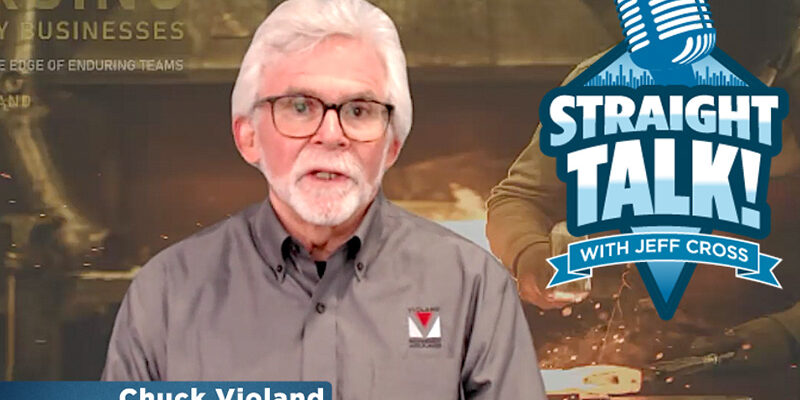Develop a Phenomenal Dream Team

So far, in this article series, we have learned how to find, attract, hire, pay, train, and coach our team. At this point in the process of building your dream team, you should have members who are winning, people you want to keep on your team, and people you want to stay with you long-term.
You have gotten to this point by getting the right people on the bus, by training them, and by creating a positive environment through coaching. By getting to this point, you are a rare and blessed business owner.
If you are not at this point yet, follow the process and get better as you go. Keep the steps handy. They have served me well for almost 40 years. I have many team members who have been with me for decades.
That is not by accident. To retain them for long periods of time is one thing. That can be done through benefits such as vacation pay, healthcare, and a positive working environment. But not everyone will rise to the company’s top levels, which is understandable.
The better you get at building the right kind of relationships with your team members and understanding the steps of building a dream team, the stronger your team will become. Remember, this is a process that you must continue to practice every day. It is not automatic. You have to earn your stripes as a leader every single day.
Once you have gotten accustomed to being a coach leader rather than a boss, and your team is trained and engaged, you should have people who are ready to move up.
Moving up
The game of getting your business predictable, profitable, and turnkey is simply a process of replacing yourself intentionally and methodically on the organizational chart. (See my article, Leading Through Coaching, , in the September/October 2023 issue of Cleanfax for a reminder of what my suggested organizational chart looks like.)
Where are you now? What areas have you replaced yourself in? What areas are next up for replacing yourself?
As you fill in the bottom row (the implementer role) of the chart and when you have successful people in those areas, you need to look for candidates to fill the middle section (the manager role). You are looking for people with good soft skills and relationship skills, or who can be trained and developed in positive personal habits and leadership skills.
WARNING! Just because someone is a great technician or salesperson does not mean they will be a good supervisor. Many people are great technicians but never develop the required soft skills.
Personal development and leadership
Two areas require development:
- Personal relationships
- Leadership skills
All of business—and all of life—is about relationships. Your ability to build solid relationships is key to building your business and is essential to building a dream team. Your team members will have to develop those skills as well.
Personal development includes having a positive self-image, building winning relationships, having a positive attitude, and understanding how to reach goals.
Leadership development is about gaining influence in others’ lives so they will follow you. Everything rises and falls on leadership, and understanding the right kind of leadership is vital to building a team.
Just knowing about personal development and leadership is not enough. As my mentor recently pointed out, knowledge isn’t enough. It must be cultivated. In other words, it has to be developed.
Be a teacher, instructor, and facilitator
Again, development happens over time. So, how do we develop people? One of my early mentors taught me a framework around development that has stuck with me to this day:
- Information: Requires a teacher
- Skill: Requires an instructor
- Experience: Requires a facilitator
In order to learn information, one only needs a teacher. The teacher transfers the information in a way that is usable. If you want to learn how to fly an airplane, for example, you need to learn how an airplane flies, how to operate the aircraft, how to go through the preflight checklist, etc.
But you don’t learn to fly an airplane with a manual only. You develop the skill by having an instructor to show you how and watch over you as you learn how to fly. Eventually, you get to fly the plane solo, which you must do before you can get your pilot’s license.
But to be a great pilot, what do you need? Experience! And to get the best experience, it wouldn’t it be good to have an experienced pilot by your side?
Develop yourself
To develop people, you must first develop yourself. If you want to develop and nurture leaders, you must first become a great leader. There’s a huge leadership vacuum in the world we live in today. There are too many people in this world who have read about leadership but never developed the skill of leadership. They think they know leadership but have never been through the fire.
Our instant-gratification culture bucks the idea of developing anything over time. Our microwave mindset demands a fully cooked meal in seconds.
But leadership doesn’t work that way. Developing people doesn’t work that way. We have to go through a few storms. We have to endure a few emergency landings. We must have wise mentors who can help us continue our leadership journey.
After training, we need to get them into different experiences.
For example, we take all of our management team through Ziglar Training so they can develop a positive self-image, build winning relationships, and learn how to set goals.
Then, we get them into leadership training. For example, we train all of our management in John Maxwell content.
Investing in and developing your top-performing team will set a strong foundation for a predictable, profitable, turnkey operation.
Take them to conferences. Put them in rooms with other leaders.
One of the things I’ve done to facilitate experiences for managers to become directors is putting them in higher-level training and mastermind rooms where leaders flesh out concepts.
I spend a lot of time with them, taking them to conferences and traveling together. I want them to know not just my vision but also my heart. I want them to understand how to make decisions like I would.
The four Cs of competence
Along the way, I learned the four Cs of competence concept, which is instructive for developing people.
We don’t hire people with experience in our cleaning business. We hire for attitude first. Remember, the ideal team player is humble, hungry, and intelligent (people smart). Then you train them for skill.
Level 1: Unconscious incompetence. Everyone starts not knowing what they don’t know. Untrained and inexperienced leaders see this as a weakness. I see it as a strength. Why? Because I would rather them not know anything than come into my business with bad habits.
Level 2: Conscious incompetence. At this level, they know they don’t know. They are learning brand new things they have never understood before. Again, this is good because as they learn something for the first time, whether that is how to push a wand, talk to a customer, or do marketing, they are learning it the right way, the first time. It will always stick with them. Of course, that depends on how good your training systems are. (Again, see my article on training in the May/June 2023 issue of Cleanfax.)
Level 3: Conscious competence. This is the minimum standard of performance. Ensure your people are well-trained before you let them operate independently. Many small business owners I talk with are afraid to let someone use their expensive equipment or speak to their top clients. I would be, too, if they weren’t trained.
Remember, the simple process of tell, show, watch. Tell them what to do. Show them how to do it (with a manual and training), then watch them do it until they get into the proper habits. This takes time, but it is worth it overall because they will eventually run your company for you.
When you get to the point where you cannot train yourself, make sure you have a trained trainer! Don’t let someone who does not know how to train do the training! You could have the best technician, best salesperson, or marketer, but they may not know how to teach someone else how to do it!
Level 4: Unconscious competence. This is the ultimate level. This is the level of mastery. When someone has enough of the right type of experience, the highest level of training, and enough practice, they become a master. Mastery takes time, but having people at that level opens up unlimited possibilities for you.
The rewards are off the charts.












